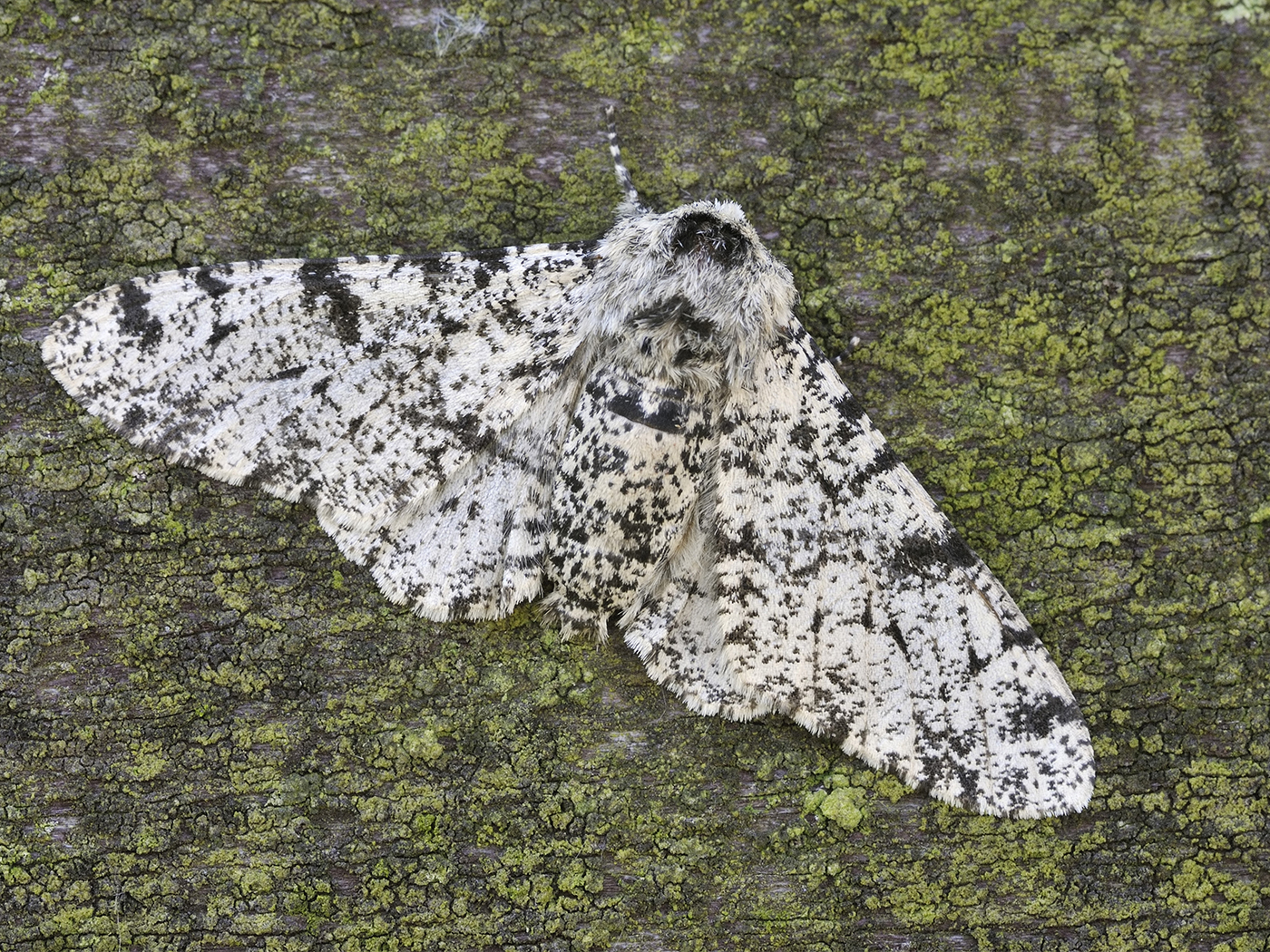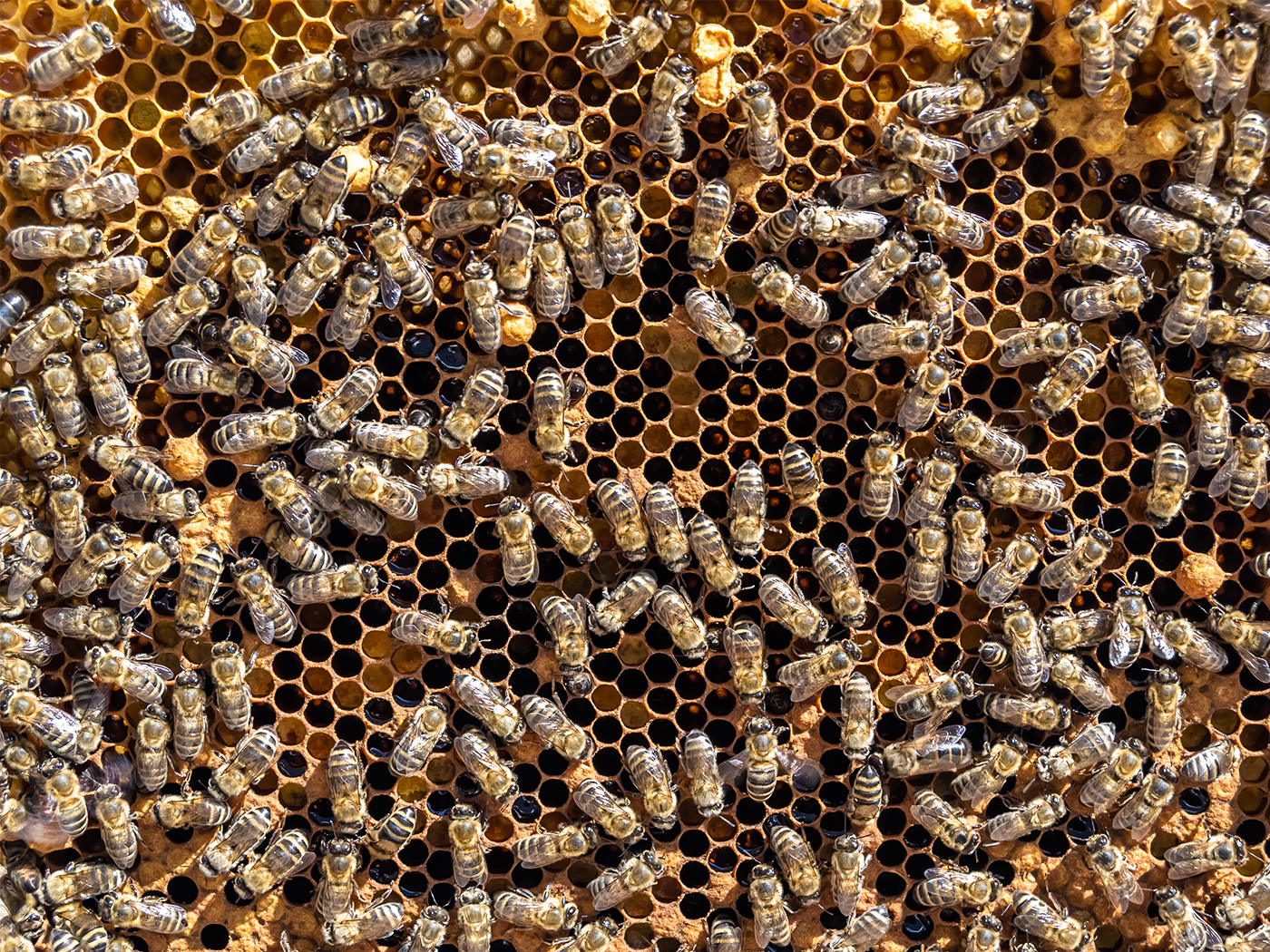The fossil record clearly shows insects have always been insects.
In a recent study, researchers led by biologist Richard J. Knecht, a Ph.D. candidate at Harvard, wrote:
[We] describe an endophytic [an organism that lives within a plant] trace fossil found on a Carboniferous seed-fern leaf that represents the earliest indication of internal feeding within a leaf. The 312-million-year-old Carboniferous fossil provides evidence of how internal feeding, known as leaf mining, may have originated and shows the age of this behavior was occurring approximately 70 million years earlier than believed.1
What they found were fossils they claimed were 312 million years old showing endophytic insect larva that are just like what we have today. They are holometabolous, meaning that they undergo full metamorphic development (i.e., distinct larval and adult forms). Insect orders in this study include Hymenopterans (sawflies and wasps), Coleoptera (beetles), Lepidoptera (moths), and Diptera (flies). The scientists discovered “a meandering trail, the larva will avoid the leaf’s edges and major veins. This leaf mining behavior is only known to be performed by holometabolous insects, including animals existing today.”1 The same behavior has been happening for 312 million years?
In addition, it’s interesting that the plant fossils were preserved very well, “what paleontologists call a Lagerstätte, a site that produces extraordinary fossils with exceptional preservation.”1 A flood of significant proportions could produce these extraordinary fossils with exceptional preservation.2,3
It’s evident the authors of the New Phytologist article4 were trying hard to shoehorn evolution into a study that does not warrant even an honorable mention of this secular philosophy.
Knecht et al. stated that this endophytic feeding behavior “sheds light on the evolutionary transition to true foliar endophagy.”4 But it does nothing of the sort. The plant and insect remain the same. Transitioning to true foliar endophagy has nothing to do with real evolution; rather, it represents an ecological shift.
The six scientists also stated this discovery “enhances our knowledge of macroevolutionary patterns of plant-insect interactions”4 with Knecht stating that “the evolution of full metamorphosis, holometabolism, existed at this time.”1 If full metamorphosis and holometabolism already existed at that time, then it’s not evolution. And looking at patterns of insect-plant interactions has nothing to do with macroevolution. Again, what is “witnessed” is an ecological transition between insect and plant.
Creationists would look at this same fossil evidence and conclude these “prehistoric” plants and insects are a result from the Flood that covered the earth about 4,500 years ago. Indeed, they are the same insects as today, undergoing full metamorphosis and holometabolism like today, and they have the same behavior as today—leaf mining. Furthermore, the fossilized material is exceptionally preserved, which is what one would expect from a catastrophic flood.5
References
- Unearthing the leaf miners of ancient times: 312-million-year-old fossil sheds light on insect behavior and evolution. Harvard University via phys.org. Posted on phys.org October 6, 2023, accessed November 20, 2023.
- Sherwin, F. More Exceptional Preservation of Organic Material. Creation Science Update. Posted on ICR.org August 23, 2018, accessed November 24, 2023.
- Hoesch, W. 2007. Lagerstätten! Acts & Facts. 36 (8): 14.
- Knecht, R. et al. 2023. Endophytic ancestors of modern leaf miners may have evolved in the Late Carboniferous. New Phytologist. 240 (5): 2050–2057.
- Morris, H. The Worldwide Flood. Days of Praise. Posted on ICR.org February 5, 2021, accessed November 20, 2023.
* Dr. Sherwin is science news writer at the Institute for Creation Research. He earned an M.A. in zoology from the University of Northern Colorado and received an Honorary Doctorate of Science from Pensacola Christian College.






















